Former Comanchero boss Fidel Tukel talks about why he walked away
Fidel Tukel claims he walked away from leading the notorious Comanchero bikie gang — and refused to wear his rank because it led to death, jail or life on the run.
Police & Courts
Don't miss out on the headlines from Police & Courts. Followed categories will be added to My News.
“I don’t want the patch, it’s cursed.” That is what former Comanchero leader Fidel Tukel told
his associates when he took over as national president of Australia’s most infamous
bikie gang.
The only three options Tukel thought awaited him if tradition prevailed were “dead, in jail, or on the run”. And as a former national boss, Tukel is the only one who has so far evaded all three. He calls it “the curse of the patch”.
“If history prevails, those are the only three options, I was conscious enough to realise I’m going to die, be on the run or in jail,” Tukel, a 41-year-old father of three, said.
“It’s a very volatile situation in the bikie world, and the wrong person saying the wrong word, can make a situation far worse than it needs to be.
“These situations are the ones that can put you in a very bad position that ultimately could end with you breaking the law to defend yourself. Hence, diplomacy was always my best form of action. Wars can be won without a drop of blood being spilt.”
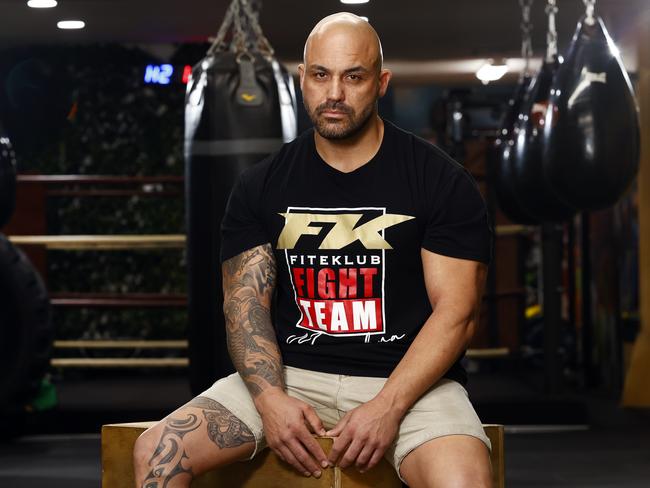
Tukel just had to look at those who’d come before. Comanchero founder Jock Ross started the club in 1966. He was jailed for his role in the Milperra Massacre in 1984 after seven people were killed in a shootout. He was shot in the head.
Ian Clissold, the club’s master sergeant who took over when Ross was on hiatus, was himself imprisoned for manslaughter in 2002.
Then Mick Hawi took control.
He survived an assassination attempt in 2007, was jailed in 2009 over his role in the fatal Sydney Airport brawl that left Tony Zervas dead, and executed in 2018 while he was sitting in his car outside a Rockdale gym.
Prior to that, strongman Duax Ngakuru had taken over the Comanchero while Hawi served his jail time. Ngakuru left Australia in 2011, at which time Mark Buddle became national president.
Buddle was jailed in 2012. Tukel’s younger brother Baris stepped up.
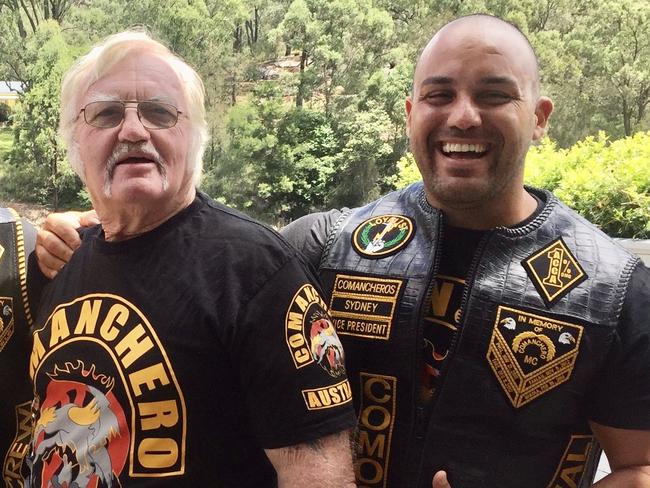
When the FBI, Australian Federal Police and authorities around the world launched Operation Ironside after infiltrating the encrypted AN0M app, Buddle, Ngakuru, Baris Tukel and Tukel’s cousin Hakan Ayik were identified as leaders of an alleged global drug syndicate and are now all on the run overseas.
Fidel Tukel’s time in charge of the Comanchero started in 2014, but during a brief hiatus his friend Pasilika Naufahu held the reins for three months. Naufahu is now in an Auckland jail for money laundering and drug charges.
When Tukel decided to quit the club in 2016, he handed the responsibility to Mick Murray, who has been charged with the murder of Mitat Rasimi and is awaiting trial.
With the recent leadership vacuum at the club, Tarek Zahed was seen as the most likely to become national president of the Comanchero, but he was shot 10 times a fortnight ago and is clinging to life in hospital.
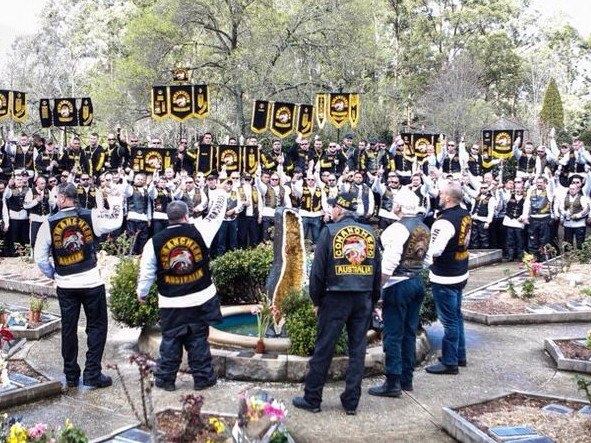
“I was national boss, but I never put on the patch,” Tukel said. “I felt like the national president patch was cursed, anyone who ever put it on previous to me ended up incarcerated or on the run.
“I actually had an argument with Buddles about it when I visited him in jail. He told me I should be wearing it to make sure people knew I was in charge, but I told him people already knew I was running the club without me having to wear it.
“I ran the club for two years when Barry and Buddles left, before that I was national lieutenant.
“I wanted to walk away knowing that I wasn’t forced to leave, and letting people see that if you do the time you can also lead. That is the legacy I wanted to leave because I genuinely cared for my brothers and the patch that I had sworn allegiance to.
“I was friends with Mick Hawi, I respected him, it was saddening. He made some bad decisions in the end but he was a good bloke to me. I’ve heard a million stories but I don’t know what happened to get him killed and it was none of my business.”
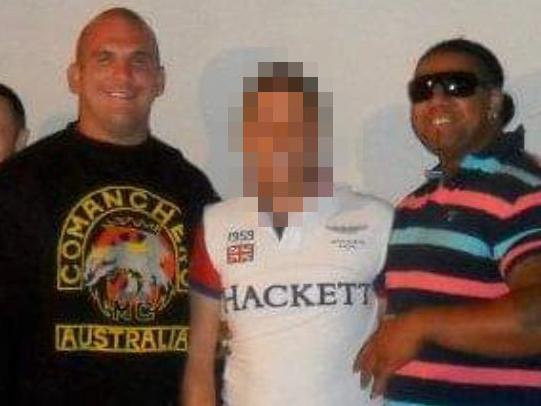
But with such questionable company, police are convinced that Tukel still remains involved with the club.
They imposed a Firearms Prohibition Order (FPO) on Tukel, allowing them to randomly search his home, business and car at any time, and obtained the FPO with secret evidence he and his lawyers weren’t allowed to see during a NSW Civil and Administrative Tribunal earlier this year.
“I’ve never applied for a firearm licence, they served me with an FPO, not because I was going around shooting people but because they wanted to be able to search and harass me whenever they want,” Tukel said.
“If they know I’m doing something wrong right now, why haven’t they locked me up?
“In the past three years, they have systematically victimised me, pulled me over on the streets trying to embarrass me, touching my groin area, attempted to pull my pants down, intimidated family members and people in my gym, jumped over the fence of my house after which my five-year-old daughter answered the door.
“Where does all this harassment align with the legal ramification of being served with an FPO, aren’t they just searching for weapons and ammunition?”
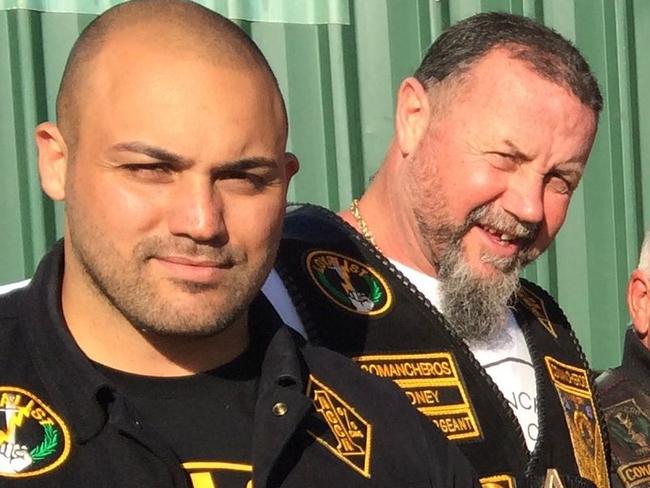
Tukel says he’s cut off all contact with his former associates. He is finally revealing his story because he is “fed up with police harassment”. This week officers attended his home and boxing gym on Wednesday.
“I am not an angel, I am not saying I’ve never done anything wrong,” Tukel said.
“But if I’m as bad as they say, how come when all these AN0M raids were going
on wouldn’t I get raided too?
“I never used the AN0M app, I haven’t travelled overseas recently, I don’t even have their phone numbers and talk to them. I don’t speak to my brother, I still love him but I don’t speak to him because of the scrutiny.”
Federal authorities have never formally questioned Tukel in relation to Operation Ironside.
Tukel admitted to three offences in his past; in 2004 he was charged with “introduce a small quantity of drugs into a correctional facility” after he was found with an ecstasy tablet in his bag while visiting a friend in jail. He was fined $800.
He’s also been served a Section 10 for swearing in public, and low-range driving under the influence.
He has never been imprisoned, and even earned praise from senior police for how he ran the Comanchero as a boss, and then left the club to concentrate on his family.
The moment he knew he needed to leave the club was when he was prevented from flying to New Zealand to visit his wife’s parents.
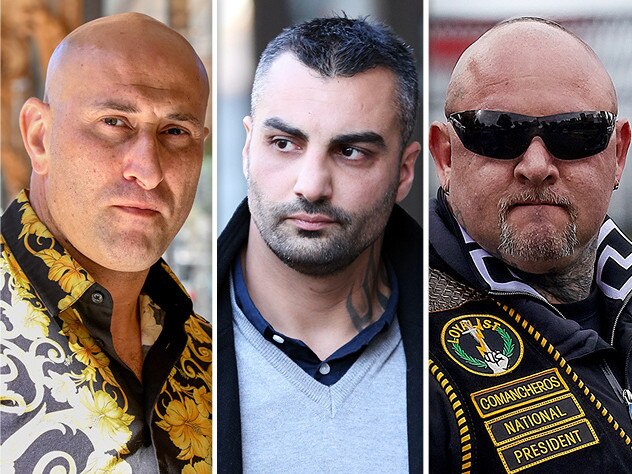
“I had a good rapport with a Raptor head honcho, I would go and speak to the cops about compliance checks, routes and rides, when we would do national runs or memorial runs,” Tukel said.
“I’d make sure all the boys’ bikes, helmets and licences were in order.
“The cops would tell me not to go on a certain route because we might run into another club, and we were fine with that. We were co-operative. We had a very civil relationship.
“I was the first person to do that with bikies in NSW, and the first person to ban bikie colours from my boxing shows.
“This Raptor honcho said ‘I give you my word everyone will leave you alone if you leave the club’.
“I spoke to Buddles, I spoke to my brother, and I told them, ‘This is affecting my family’.
“I can’t see my in-laws, they are ageing. I wanted to live in New Zealand in future.
“Everyone agreed that I could hand in my colours. So I sent my colours to Turkey, my vest and the patch. And when you join, that patch is the most superior symbol of your club life, that’s your heart and soul, what you make allegiance to. It’s more important than your bike.
“The Raptor leader told me when I left that if I ever needed a reference in court, he would be there to testify. He said he couldn’t give me a written agreement, but that he would say it in court and then it would be on public record.
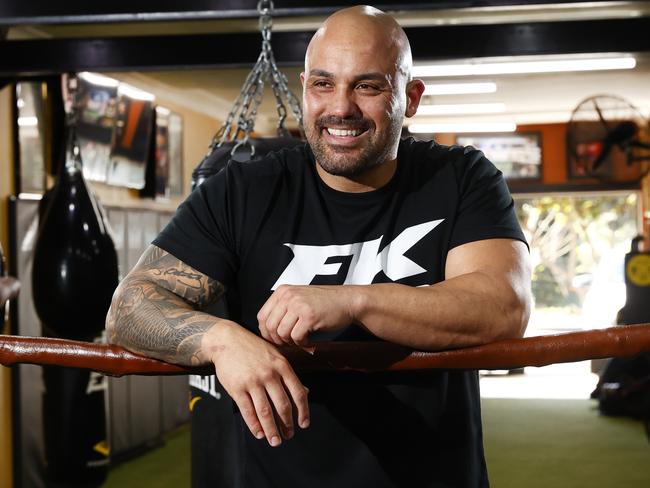
“So it came to my tribunal hearing and I called him, he agreed to come, but then the day before he rang my barrister and basically said it’s not right for him to go and doesn’t think he should go. But that was one of the reasons I left the club.”
NSW Police said they do not comment on FPO matters.
Tukel said: “And I stepped down from the club in April 2016, and I wasn’t banned from going to New Zealand until December that year, after I had already made the decision to take a different direction.”
Sources told The Saturday Telegraph that Tukel built a fearsome reputation on the streets as a teenager because of his fighting abilities, and would be used as muscle to collect debts.
“I only collected on legitimate business debts, nothing drug-related, I’ve always been known to be able to fight, but it was my organisational skills and commitment that allowed me to become a leader,” Tukel said.
“I am a talker, I used diplomacy to settle situations whereas others would want to punch on.
“On a lot of occasions, I was able to convince people to take the diplomatic option, and I’d buy them a beer at the bar.
“I was a leader because I take responsibility. But that part of my life finished in 2016 when I left.
“The police are saying I’m a life member of the club, but never at any stage did I talk about being a life member, it was never offered, I didn’t do my time for that to be offered.
“They used secret evidence during my tribunal hearing which I and my legal team weren’t allowed to access, so how could we even defend their evidence?
“These laws were created for terrorism, now they’re using it against former bikies, Who is next? Vegans, anti-vaxxers, people who don’t want to conform to government policy? When did we turn into Russia?
“Yes, I do know shady characters. I treat them on face value, I treat them how they treat me, not because of what police and media say about them.
“I’m from regional Victoria originally and these are the Australian values we were taught in the country.”
Got a news tip? Email weekendtele@news.com.au
Originally published as Former Comanchero boss Fidel Tukel talks about why he walked away



